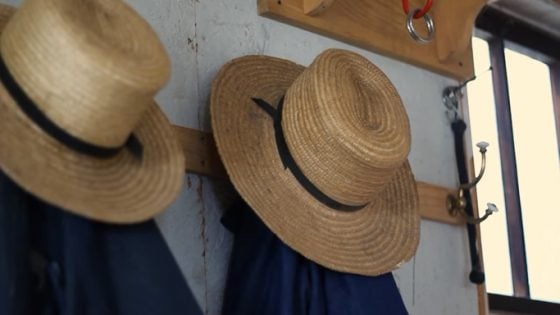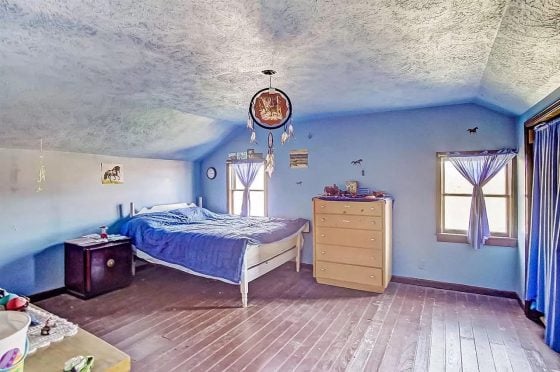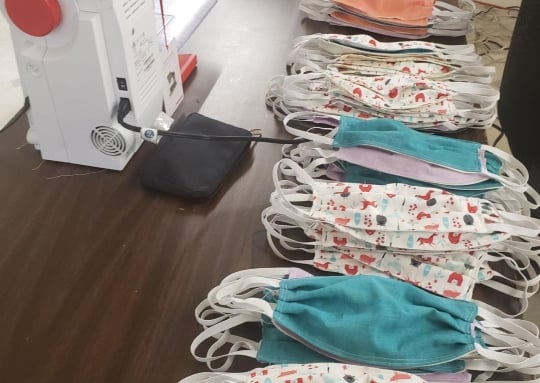Amish Furniture Makers Ready For Restart
Trade publication Furniture Today gives an optimistic look at how the Amish furniture industry is positioned to rebound once states “reopen,” and business can start getting back to something like normal.
They spoke with several sources, including Roy Miller who is CEO of a large-for-the-Amish manufacturer which, like many others, has been shut down for weeks:
“I have some hopes that by May 1, we should have some guidelines and be able to get back at it,” said Country View Woodworking CEO Roy Miller, whose 60,000-square-foot Ohio plant has been shut down five weeks since mid-March. “Obviously the stores will have to open up to keep us going. And obviously, we will be a little careful to whom we ship; we have to get paid for it.”
As of April 20, he said, the company had some $80,000 worth of finished goods including dining and bedroom sets that are ready to ship and some $350,000 in similar product waiting to be finished and shipped.
Many states begin “reopening” this week and next week, including Ohio. May 4th is when manufacturing can officially restart in Ohio, and retail about a week later on May 12th. After that happens, it looks like early-to-mid summer is a hoped-for time frame for seeing furniture interest pick up:
“Our backlog is high, but we turn inventory very fast,” he said. “If the stores are open and we keep rolling, we will be good. If orders don’t come in June and July, we will be concerned about it, but we will take it as it comes. We have no choice.”
Many Amish furniture producers are wholesalers, so key for them is that retail stores are open for business. The comments of a sales manager for another Amish furniture brand reflect this:
“All Amish builders are in the same boat,” said George Arbeiter, national sales manager. “As such, we have had our production disrupted, but the vast majority of our dealers have been shut down as well. We basically produce everything we sell, … but we had several weeks of product built that couldn’t ship because the stores were closed.”
…
“We are jammed with product, and we are anxious to ship,” Arbeiter said. “We build everything to order whether it be for dealer inventory or sold orders. We are looking forward to getting started and are fortunate we have a semi-reasonable backlog to deal with so when things reopen, we will have a bit of a running start.”
Bigger producers typically have an array of smaller sub-contracted shops building parts and components for them. Here’s an example:
Gat Caperton, CEO of solid wood resource Gat Creek, said that he is hoping to restart production May 4 after being closed since March 23. He noted that the company also has some finished goods inventory and an estimated seven-and-a-half-week order backlog.
“We have seven weeks of production scheduled,” Caperton said. “We are planning on coming back up to full capacity and running at full capacity for two months.”
Today, the company builds about half its furniture and has the rest built by about 15 workshops, most of which are in Ohio, the rest in Pennsylvania. Ten of those are Mennonite-owned and the rest are Amish.
In some cases, working with smaller shops has been a plus:
Some continue to see advantages in working with small sub shops that haven’t been hit as hard by stay-at-home mandates because their workshops are an extension of their homes.
That includes Arcola, Ill.,-based solid wood manufacturer Simply Amish, which produces its own goods but also has some goods made by Amish workshops.
…
“We might have one small advantage in that a number of the craftsmen that Simply Amish works with are smaller shops that are located on their homesteads. In some of those cases, it has been safe for them to continue working and building special-ordered product throughout this crisis; they were working from home long before it was cool.”
Another business shut down by the restrictions pivoted to make masks. But they too are ready to go back to their bread-and-butter:
Sam Stoltzfus, sales manager at Amish furniture manufacturer Palettes by Winesburg, said the company has been closed since March 27, but it brought about 60 of 200 workers back to work the week of April 8 to produce face masks. As conditions improve, including the reopening of retail, it aims to begin producing furniture at much closer to full capacity.
I think it’s clear that people are ready to get back to work across the country. That includes Amish furniture makers, with all the many people associated with them, from line workers in bigger shops to family woodworking outfits to the (often-non-Amish-owned) retail shops driving business for the industry.
Thousands of Amish families depend on the furniture industry for their livelihoods, as do many non-Amish as well.
The article gives a positive outlook on getting the industry running again. “We did a hard and fast stop, and it will be a hard and fast start up as well,” says Caperton. Hopefully we’ll see this industry as one among many getting back on its feet in this and the coming weeks.







